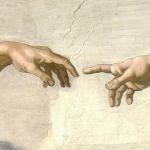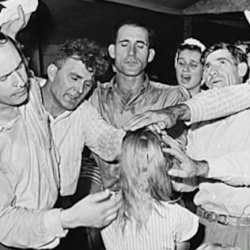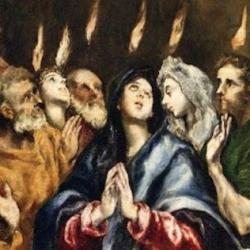In Renewing Christian Theology, Amos Yong cautions against understanding the charismata of the New Testament church as “supernatural” gifts “in the modernist sense.” Charismatics too need their nouvelle theologie.
He elaborates: “Enlightenment rationalism distinguished what behaved according to natural laws versus what was thought to happen “supernaturally” due “only to divine activity. The earliest Christians did not operate according to such a dichotomous understanding of the natural and the supernatural. Rather there are various spiritual gifts, some more charismatic (such as those in 1 Cor 12) and others less so (as in Rom 12; Eph 4; 1 Pet 4)—yet the latter are no less gracious endowments of God’s Spirit.”
Once this dualism has been discarded, “there is a special but no less real sense in which the charisms of the Spirit can be nurtured.” Gifts don’t emerge in the church only as sudden bolts from beyond. Instead, “there are basic human processes through which the gifts can be developed and cultivated, and these are open to study via the human sciences. This anthropological dimension does not require a reductionist view of the charismata. Instead, it challenges believers to see how God both transcends and yet works within and through the historical processes of the world God has made. Life in the Spirit unfolds organically in a divinely ordered incubation that is the church, or to put it otherwise, in the body of Christ and through the fellowship or communion of God’s breath.”
In short, ““in a post-Enlightenment world, we can accept both that God works charismatically by the Spirit and that this does not eliminate the integrity of creation’s processes, themselves provided for by God.”
This is not only a helpful word to Yong’s fellow Pentecostals and charismatics. It also raises the question of how far the whole debate over the gifts has been skewed by both sides adhering to a nature/supernature dichotomy.











